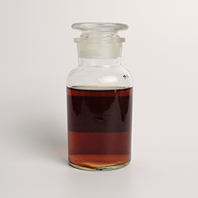Wide Temperature Desizing Enzyme
- Home
- Products & Applications
- Wide Temperature Desizing Enzyme

Wide Temperature Desizing Enzyme
Description:
This is the combination of High-Temperature α-Amylase obtained from Bacillus licheniformis and Mid-Temperature α-Amylase obtained from Bacillus subtilis. It is used in textiles for desizing purposes.
Technical information:
- Available in liquid (brown) 25,000 u/ml.
- Specific gravity: 1.10-1.25 g/ml.
- Temperature range: 40 to 110℃ (Optimum temperature: 75 to 95℃).
- pH range: 6.0-7.5 (Optimum pH: 6.5-7.0)
- Metal ions such as: Ca2+; Mn2+ and Mg2+ will enhance the enzyme’s activity, while Hg2+; Pb2+; Zn2+ will have a negative effect on its performance
- Unit definition: The amount of enzyme needed to hydrolyze 1 mg of starch in one minute at a pH of 5.0 at 70℃ (Standard: QB 8275-2009)
Mode of Action:
This enzyme randomly hydrolyzes α-1.4 links of gelatinized starch and convert them in dextrins and soluble oligosaccharides thus, facilitating its removal.
Uses:
- Textiles
High-Temperature α-Amylase is used in textile finishing for desizing, which is the random hydrolyzation of starch molecules into dextrins and oligosaccharides from the fabric to facilitate its removal or to dissolve them in hot water.
Recommended dosage: Bath ratio 1:10-20; enzyme concentration: 1.0-3.0 mi/L at a pH of 6.0-7.0 for 30 to 60 minutes.
Packaging, Storage & Handling
- Liquid: Plastic drums of 22; 200; 840 and 1,000 L.
- Storage & handling: Due to its organic nature, high temperature, strong acid & strong alkaline conditions will inactivate the enzyme.
